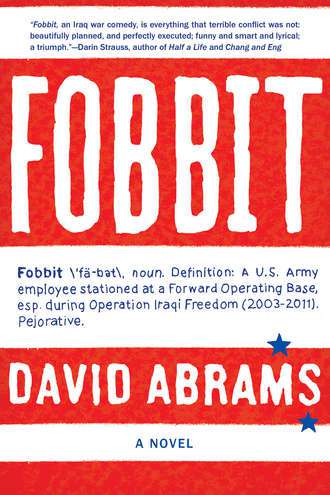 After I published my first piece and realized that this writing thing was something I needed to do, I grabbed every piece of war literature I could find. It was 2013, and I was coming late to the game. Figured I needed to catch up with how other folks were writing about my wars. And not just any folks, but veterans turned authors. Fobbit was one of the first books I picked up, mostly, I think, because of the title.
After I published my first piece and realized that this writing thing was something I needed to do, I grabbed every piece of war literature I could find. It was 2013, and I was coming late to the game. Figured I needed to catch up with how other folks were writing about my wars. And not just any folks, but veterans turned authors. Fobbit was one of the first books I picked up, mostly, I think, because of the title.
A “fobbit” is military slang for someone whose deployed job never took them outside the wire and exposed them to what we’d traditionally view as “combat.” Which, among the incredible number of those who have deployed in the past sixteen years, is precious few. Constructed from the acronym FOB (forward operating base) and “hobbit,” well, I suppose you can do the math. It’s a term of derision.
The book is a comic look at Iraq as viewed through the eyes of Staff Sergeant Chance Gooding, “the most fobbity of all fobbits.” But to call the book strictly comic, or satire, would be to cage it inappropriately. There are scenes that are laugh-out-loud funny –I had a brief fobbit deployment to Iraq in 2010, so the palace scenes are familiar to me — but Abrams, an Army veteran, understands that the prime mover in all of this is war itself. And as such, you can never really get away from tragedy: the original gangster of the war literature taxonogy game.
It’s odd now, to look back at Fobbit, which I read long before I called myself a nonfiction writer, essayist, memoirist. It’s odd because I wonder if shouldn’t have been reading more novels during my MFA. See, there’s this thing called “story,” and it turns out novelists had the thing licked a couple hundred years before nonfiction was considered an art form. It’s what Tom Wolfe talks about explicitly in The New Journalism: the idea that one could write a nonfiction story like a novel, and wouldn’t that be so much better to both read and to write?
This isn’t a ding on MFA programs — there’s plenty of useless diatribe out there should you want to invest time (I don’t) or ducats (certainly not) in the rhetoric — but in retrospect, I probably should have read in a few more works of fiction over the past few years. In building my reading lists, I was too focused: predominantly war memoir with a few grudging allowances for “regular” memoir, a few poetry books (war poetry only), and a handful of fiction books.
Normally, I draw a craft lesson from the books I talk about on this blog. But in this case, it’s a bit more personal and on the nose, which speaks to the quality of what David Abrams wrote: read more fiction, dummy. It can only help.
Buy the book on Amazon.
Share this:





